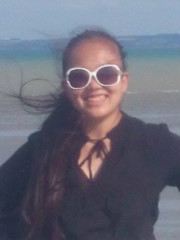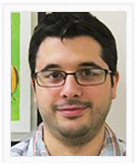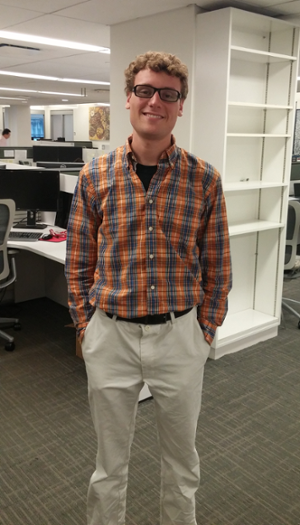NSF Research Traineeship (NRT) 2015-16
Students participated in a one semester course consisting of three one month long modules, entitled "Methods In Data Enabled Research Into Human Behavior And Its Cognitive And Neural Mechanisms". This course ran for the first time in Fall 2015 and consisted of three, month long modules that were designed to expose students to a mixture of methods and approaches in data science and cognitive science. This year's modules were:
- Interpreting fMRI led by Professor Rajeev Raizada. This module focused on applying data science approaches to neuroimaging (functional MRI) data from humans.
- Computational Approaches to Natural Language Processing led by Professor Dan Gildea.
- Applications on "Sensing in the Wild" led by Professor Ehsan Hoque. This module focused on applications of computer science techniques to problems in designing human computer interfaces, crowd computing, and wearable computing.
The following semester, students participated in “Practicum in Data Enabled Research into Human Behavior and its Cognitive and Neural Mechanisms”, in which trainees work in mixed teams of CS and BCS
2015-16 Practicum Projects
A replication of AlphaGo
In this course, Practicum In Data-Enabled Research Into Human Behavior And Its Cognitive & Neural Mechanisms, we started off with a discussion of a variety of projects/artifacts the students are interested in. One interesting publication [1] caught our eyes. Many had thought that computer master of the game of go was decades away, so the sudden success of Google DeepMind's AlphaGo system came as a shock. The paper used deep reinforcement learning, which has influences from the area of Brain and Cognitive Science.
[1] Silver D, Huang A, Maddison C J, et al. Mastering the game of Go with deep neural networks and tree search[J]. Nature, 2016, 529(7587): 484-489.
Bios of the 2015-16 Class Members
 | Chris BatesChris started his Project What did I learn from the course? "This course project has exposed me to coding best-practices and use of Github as a collaborative coding tool. It has also exposed me to programming with neural networks on GPUs and use of computing clusters. I have been surprised at how doable the project is and the eagerness of community collaborators on Github." Update 2021: postdoctoral fellow at Department of Psychology, Harvard University since Sept. 2020
|
 | Iris Yuping RenIris Ren is a Project What did I learn from the course? The framework of the AlphaGo system. Brainstorming and teamwork. Github version control. Techniques in python. How might this course affect my career? "I am now more interested in a career relevant to machine learning." What was surprising or the greatest challenge? Writing quality code and |
 | Richard LangeRichard is a second-year What did I learn from the course? "In this course, I took on my first significant project leadership role. In addition to getting valuable hands-on experience with modern neural network techniques, I learned how to better explain technical concepts, and how to delegate work effectively." How might this course affect my What was surprising or the greatest challenge? "This course challenged us to break our habits formed working on software alone, taking time to blueprint and write a good open-source project." |
 | Louis MartiLouis graduated from the University of Maryland, College Park with a double degree in Computer Science and Psychology. He worked as a professional software developer for six years before deciding to pursue a Project contributions Louis worked on |
 | Tyler TrineTyler is an undergraduate data science student. His plans for next year are to join the workforce. Longer term, he is passionate about furthering the field of artificial intelligence and using it to improve people's lives. Project What did I learn from the course? "I've learned more from this class than any other I've taken in college! In hindsight, we took on a very ambitious project. But throughout the process of learning how AlphaGo works, I became familiar with state-of-the-art deep learning techniques. If we hadn't reached for such a lofty goal, I may not have learned as much." How might this course affect my career? "Very positively! This class has developed my understanding of machine learning immensely. The techniques we used are general; they have a broad range of applications. Their use is so widespread, in fact, that I feel I would have an edge in both industry and academia." What was surprising or the greatest challenge? "The greatest challenge was managing complexity. AlphaGo has so many moving parts, each with a distinct purpose. Furthermore, these parts combine to form an idiosyncratic and, at times, unintuitive whole. Thankfully Richard, who studied computer science |
 | Yue WangEmail: ywang214@ur.rochester.edu Project What did I learn from the course? Learned about many things, How might this project affect my career? "The biggest takeaway of this course is that it inspired me to learn lots of new things, such as reinforcement learning, What was surprising or the greatest challenge? "Replicating AlphaGo is a great project to work on in terms of combining the knowledge I learned from my machine learning course and other related |
